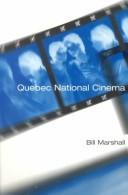| Listing 1 - 10 of 26 | << page >> |
Sort by
|
Book
ISBN: 1443868604 9781443868600 9781443841337 1443841331 Year: 2013 Publisher: Newcastle upon Tyne, UK
Abstract | Keywords | Export | Availability | Bookmark
 Loading...
Loading...Choose an application
- Reference Manager
- EndNote
- RefWorks (Direct export to RefWorks)
""As new geographies of mobility and hybridity make the concept of national identity highly problematic, new questions emerge that challenge and destabilize our conventional ways of thinking. Where do migrants 'belong'? Are they members of a distant nation, or natives of the places in which they live? What kind of changes does the sense of 'Turkishness' undergo, and what does it mean to various Turkish communities living in various parts of the world? Most important of all, can emergent migran...
Book
ISBN: 0857459465 Year: 2013 Publisher: New York : Berghahn Books,
Abstract | Keywords | Export | Availability | Bookmark
 Loading...
Loading...Choose an application
- Reference Manager
- EndNote
- RefWorks (Direct export to RefWorks)
Despite the massive influx of Hollywood movies and films from other European countries after World War II, Austrian film continued to be hugely popular with Austrian and German audiences. By examining the decisive role that popular cinema played in the turbulent post-war era, this book provides unique insights into the reconstruction of a disrupted society. Through detailed analysis of the stylistic patterns, narratives and major themes of four popular genres of the time, costume film, Heimatfilm, tourist film and comedy, the book explains how popular cinema helped to shape national identity,
Masculinity in motion pictures. --- Nationalism in motion pictures. --- Motion pictures --- History
Book
ISBN: 1496218248 1496218264 9781496218261 9781496215529 9781496218247 9781496218254 Year: 2020 Publisher: Lincoln
Abstract | Keywords | Export | Availability | Bookmark
 Loading...
Loading...Choose an application
- Reference Manager
- EndNote
- RefWorks (Direct export to RefWorks)
Sports have long fascinated filmmakers from Hollywood and beyond, from Bend It Like Beckham to Chariots of Fire to Rocky. Though sports films are diverse in their approach, style, and storytelling modes, National Pastimes discloses the common emotional and visual cues that belie each sports film's underlying nationalistic impulses. Katharina Bonzel unravels the delicate matrix of national identity, sports, and emotion through the lens of popular sports films in comparative national contexts, demonstrating in the process how popular culture provides a powerful vehicle for the development and maintenance of identities of place across a range of national cinemas. As films reflect the ways in which myths of nation and national belonging change over time, they are implicated in important historical moments, from Cold War America to the class dynamics of 1980s Thatcherite Britain to the fragmented sense of nation in post-unification Germany. Bonzel shows how sports films provide a means for renegotiating the boundaries of national identity in an accessible, engaging form. National Pastimes opens up new ways of understanding how films appeal to the emotions, using myth-like constructions of the past to cultivate spectators'engagement with historical events. -- Publisher
National characteristics in motion pictures. --- Nationalism in motion pictures. --- Sports films --- History.
Book
ISBN: 1350986429 1838608532 Year: 2018 Publisher: London, England : London, England : I.B. Tauris & Co. Ltd, Bloomsbury Publishing,
Abstract | Keywords | Export | Availability | Bookmark
 Loading...
Loading...Choose an application
- Reference Manager
- EndNote
- RefWorks (Direct export to RefWorks)
Cinema and nationalism are two fundamentally modern phenomena, but how have films shaped our understanding of the creation--the 'imagining'--of Central Asian nations? Here, Rico Isaacs uses cinema as an analytical lens to explore how Kazakh national identity has been constructed and contested. Drawing on an analysis of Kazakh films from the last century, and featuring new interviews with directors and critics involved in the Central Asian film industry, his book traces the construction of nationalism within Kazakh cinema from the country's inception as a Soviet Republic to its current status as a modern independent nation. Isaacs identifies four narratives since the collapse of the Soviet Union: a warrior-like 'ethnic' narrative rooted in the eighteenth-century struggles against the Mongolian Oirat tribes; a 'civic' inspired narrative cemented in the Stalinist deportations of the 1930s and 1940s; a religious narrative founded within the mystic and philosophical religion of Tengrism and the cult of the Sky God; and a socio-economic narrative which roots Kazakh nationhood and identity in contemporary social divisions, the lived day-to-day experiences of ordinary citizens and the struggles they face with authority. These last two tropes demonstrate how cinema has emerged as a site of dissent against the country's authoritarian regime under President Nazarbayev. Film and Identity in Kazakhstan advances our understanding of Kazakhstan and nationalism by demonstrating the multiple and inessential character of each, and illustrates the important role of cinema in contesting political power in the post-Soviet space--back cover.
Identity (Psychology) in motion pictures. --- Motion pictures --- Nationalism in motion pictures. --- History.

ISBN: 1474470769 074865108X 0748629718 1280833882 9786610833887 074862662X 9780748626625 9780748629718 9781280833885 0748622446 9780748622443 0748622446 9780748622443 Year: 2006 Publisher: Edinburgh Edinburgh University Press
Abstract | Keywords | Export | Availability | Bookmark
 Loading...
Loading...Choose an application
- Reference Manager
- EndNote
- RefWorks (Direct export to RefWorks)
This book challenges the traditional use of Deleuze's philosophy to examine European art cinema. It explores how Deleuze can be used to analyse national identity across a range of different cinemas. Focusing on narrative time it combines a Deleuzean approach with a vast range of non-traditional material. The films discussed are contemporary and popular (either financial or cult successes), and include Eternal Sunshine of the Spotless Mind, Terminator 3, Memento, Saving Private Ryan, Run Lola Run, Sliding Doors, Chaos and Peppermint Candy. Each film is examined in light of a major historical ev
Motion pictures --- Nationalism in motion pictures. --- Aesthetics --- Aesthetics. --- Philosophy. --- Deleuze, Gilles, --- Deleuze, G. --- Delëz, Zhilʹ, --- Dūlūz, Jīl, --- دولوز، جيل --- Delezi, Jier,

ISBN: 1282858939 9786612858932 077356876X 9780773568761 0773521038 9780773521032 077352116X 9780773521162 9781282858930 6612858931 Year: 2001 Publisher: Montreal, Que. McGill-Queen's University Press
Abstract | Keywords | Export | Availability | Bookmark
 Loading...
Loading...Choose an application
- Reference Manager
- EndNote
- RefWorks (Direct export to RefWorks)
In the first comprehensive, theoretically informed work in English on Quebec cinema, Marshall views his subject as neither the assertion of some unproblematic national wholeness nor a random collection of disparate voices that drown out or invalidate the question of nation. Instead, he shows that while the allegory of nation marks Quebec film production it also leads to a tension between textual and contextual forces, between homogeneity and heterogeneity, and between major and minor modes of being and identity. Drawing on a broad framework of theory and particularly indebted to the work of Gilles Deleuze and Félix Guattari, Quebec National Cinema makes a valuable contribution to debates in film studies on national cinemas and to the burgeoning interest in French studies in the culture and politics of la francophonie.
Motion pictures --- Nationalism in motion pictures. --- Cinema --- Feature films --- Films --- Movies --- Moving-pictures --- Audio-visual materials --- Mass media --- Performing arts --- Social aspects --- History. --- History and criticism
Book
ISBN: 9588890861 9789588890869 9789588890876 958889087X Year: 2015 Publisher: Medellín, Colombia, Suramérica
Abstract | Keywords | Export | Availability | Bookmark
 Loading...
Loading...Choose an application
- Reference Manager
- EndNote
- RefWorks (Direct export to RefWorks)
Motion pictures --- Nationalism in motion pictures. --- Cinema --- Feature films --- Films --- Movies --- Moving-pictures --- Audio-visual materials --- Mass media --- Performing arts --- Social aspects --- Political aspects --- History and criticism
Book
ISBN: 9783039119745 Year: 2011 Publisher: Oxford Peter Lang
Abstract | Keywords | Export | Availability | Bookmark
 Loading...
Loading...Choose an application
- Reference Manager
- EndNote
- RefWorks (Direct export to RefWorks)
Imperialism in motion pictures --- Motion pictures --- Motion pictures --- Nationalism in motion pictures --- History --- History --- India --- Ireland --- In motion pictures. --- In motion pictures.
Book
ISBN: 1785332082 1782383662 9781782383666 9781782383659 1782383654 Year: 2014 Publisher: New York Oxford
Abstract | Keywords | Export | Availability | Bookmark
 Loading...
Loading...Choose an application
- Reference Manager
- EndNote
- RefWorks (Direct export to RefWorks)
It is often taken for granted that French cinema is intimately connected to the nation's sense of identity and self-confidence. But what do we really know about that relationship? What are the nuances, insider codes, and hidden history of the alignment between cinema and nationalism? Hugo Frey suggests that the concepts of the 'political myth' and 'the film event' are the essential theoretical reference points for unlocking film history. Nationalism and the Cinema in France offers new arguments regarding those connections in the French case, examining national elitism, neo-colonial
Motion pictures --- Nationalism in motion pictures. --- Patriotism in motion pictures. --- Cinema --- Feature films --- Films --- Movies --- Moving-pictures --- Audio-visual materials --- Mass media --- Performing arts --- History --- Political aspects --- History and criticism
Book
ISBN: 1282764888 9786612764882 1554581958 1554582717 9781554582716 9781554581955 1554581796 9781554581795 Year: 2010 Publisher: [Waterloo, Ont.] Wilfrid Laurier University Press
Abstract | Keywords | Export | Availability | Bookmark
 Loading...
Loading...Choose an application
- Reference Manager
- EndNote
- RefWorks (Direct export to RefWorks)
This book is the first major study of Canadian women filmmakers since the groundbreaking Gendering the Nation (1999). The Gendered Screen updates the subject with discussions of important filmmakers such as Deepa Mehta, Anne Wheeler, Mina Shum, Lynne Stopkewich, Léa Pool, and Patricia Rozema, whose careers have produced major bodies of work. It also introduces critical studies of newer filmmakers such as Andrea Dorfman and Sylvia Hamilton and new media video artists.Feminist scholars are re-examining the ways in which authorship, nationality, and gender interconnect. Contributors to this volume emphasize a diverse feminist study of film that is open, inclusive, and self-critical. Issues of hybridity and transnationality as well as race and sexual orientation challenge older forms of discourse on national cinema. Essays address the transnational filmmaker, the queer filmmaker, the feminist filmmaker, the documentarist, and the video artist--just some of the diverse identities of Canadian women filmmakers working in both commercial and art cinema today.
Nationalism in motion pictures. --- Lesbians in motion pictures. --- Women in motion pictures. --- Women motion picture producers and directors --- Feminist films --- History and criticism. --- Women Motion Picture Producers And Directors --- Women --- Motion Pictures --- Performing Arts --- Social Science
| Listing 1 - 10 of 26 | << page >> |
Sort by
|

 Search
Search Feedback
Feedback About UniCat
About UniCat  Help
Help News
News